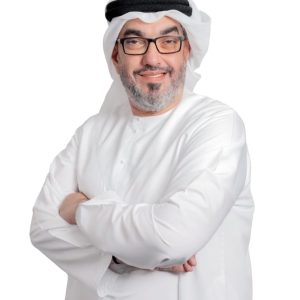Every civilization fades not when it runs out of power — but when it runs out of questions.
From the cradle of civilization to the heart of the Emirates, a reflection on how every society can rediscover its purpose through culture, education, and human development.
Once upon a time, the world’s map of knowledge had a center — and it was Baghdad.
A city where thought was sacred, where scholars from different faiths and lands debated ideas under the same roof, and where curiosity was considered a divine act. The House of Wisdom wasn’t merely a library; it was a declaration that civilization begins in the mind before it builds in stone.
But as centuries passed, the region that once illuminated the world dimmed its own light. Conflict replaced conversation, and memorization replaced imagination. We stopped asking why and became content with what. And in doing so, we lost the one thing that made us exceptional — our hunger to understand.
And perhaps that loss isn’t limited to one region. From East to West, societies are facing the same quiet crisis — the triumph of information over wisdom, of speed over depth, and of noise over meaning.
Today, a new chapter is quietly being written — not in defiance of the past, but in continuation of it. The United Arab Emirates, often associated with its dazzling skyline, has been investing in something far more enduring than glass and steel: its people.
Within the Emirates lies Sharjah — a city that doesn’t compete for height, but for depth. While others build towers, Sharjah builds minds. It stands as the cultural compass of the nation, where art, education, and civic responsibility intersect.
Having lived and worked within this ecosystem, I’ve witnessed how Sharjah has managed to combine tradition with innovation — not through slogans, but through tangible investment in youth, women, and lifelong learning. Institutions like Rubu’ Qarn, for example, are reshaping the way we think about education, creativity, and the very definition of success. It is a model that doesn’t just prepare people for jobs, but for purpose.
And this lesson extends beyond the Arab world. Every nation, regardless of geography, faces the same choice: whether to build economies that consume or societies that create.
Lessons Between the Two Cities
Baghdad once led the world because it believed that knowledge was the ultimate form of power. Sharjah thrives today because it believes that knowledge must be shared to sustain that power. Between these two cities — one ancient, one emerging — lies a universal truth: progress is not born from wealth or war, but from wisdom.
Reform doesn’t begin in parliaments or palaces; it begins in classrooms, studios, and conversations. True progress is not measured by how fast we modernize, but by how meaningfully we remember. The renaissance we seek is not a revolution — it is a return. A return to curiosity, dialogue, and dignity in thought.
For those of us who were educated between East and West, this balance is not theoretical — it’s personal. We have seen what happens when knowledge is treated as currency, and what happens when it’s treated as culture. The world doesn’t lack intelligence; it lacks continuity. It doesn’t lack potential; it lacks patience.
Reclaiming the Arab Renaissance — and Beyond
If Baghdad symbolizes the memory of what we once were, and Sharjah represents what we could become, then our responsibility lies in building the bridge between them. The UAE has demonstrated that reform rooted in culture and education can outlast oil, politics, and trends. Iraq — and many nations alike — hold the raw talent and historical foundation to do the same.
The next global renaissance — whether Arab, Asian, or Western — will not come from slogans or borrowed systems. It will come from rebuilding trust in knowledge — from investing in schools that inspire, partnerships that empower, and policies that liberate the mind.
Between Baghdad and Sharjah lies more than distance. It is a journey between memory and possibility, between what we lost and what we are destined to rebuild.
And perhaps the truth is simple:
Humanity doesn’t need to start a new renaissance.
It only needs to remember that it once led one.












